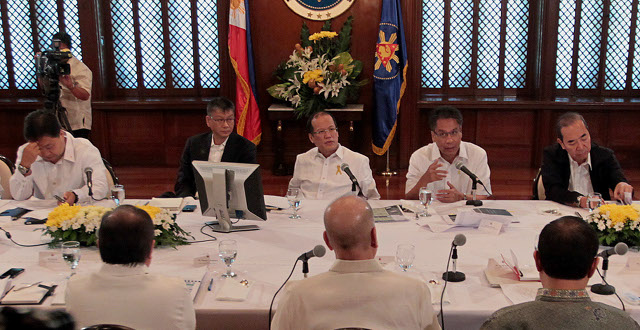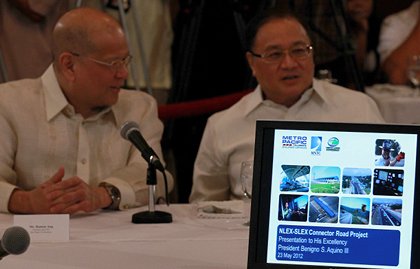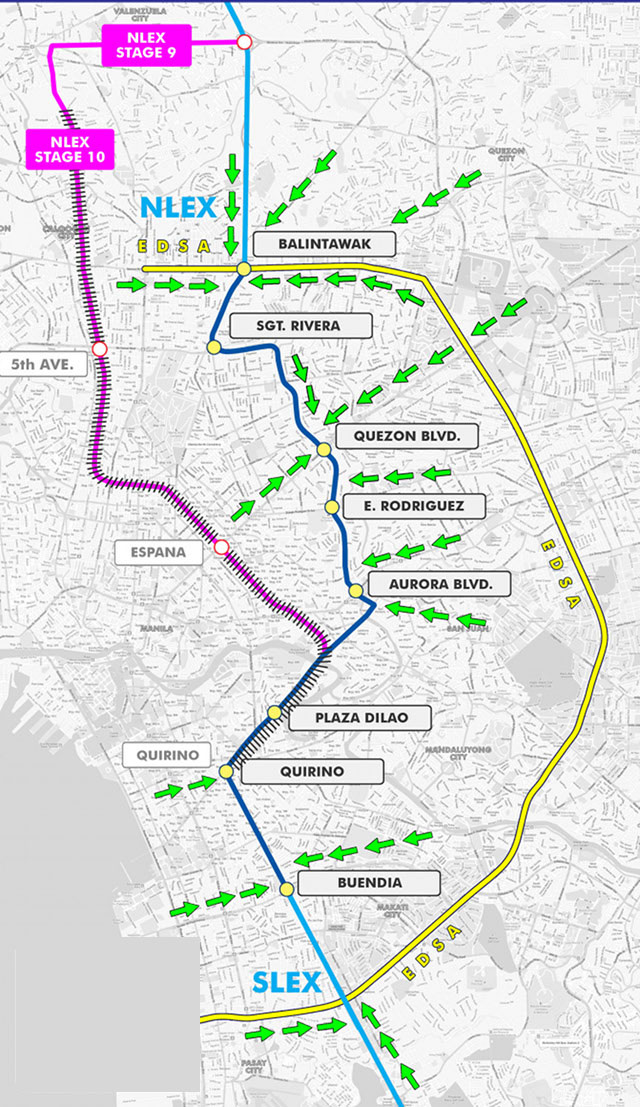SUMMARY
This is AI generated summarization, which may have errors. For context, always refer to the full article.

MANILA, Philippines – President Aquino is not too hot about the promises of public-private partnership (PPP) program anymore.
In an interview aired July 18 on ANC, he said the difference between the expectations in 2010, when he first trumpeted the benefits of PPP mode for big-ticket projects, and the current economic environment has made him rethink his government’s infrastructure and investment strategies.
“We started out with the expectation that there was nothing left in our coffers that would enable us to build the infrastructure necessary. Then the turnaround happened — not in the first year but in the first 6 months — [and] investors started coming in, [credit rating] upgrades started to happen, the stock market became very very bullish, and then there were increases in the revenues,” he said in the interview.
“[These] changed the factors and the equations,” he shared with Coco Alcuaz who conducted the interview.
Aquino highlighted the PPP strategy in his first State of the Nation Address (Sona) in 2010, when he assumed office. He will deliver his 3rd Sona on July 23.
San Miguel, Pangilinan groups
He cited the “bidding war” for a road project that links the toll roads south and north of Metro Manila: South Luzon Expressway (SLEx) and North Luzon Expressway (NLEx).
The “connector road” between SLEx and NLEx is eyed by two of the country’s biggest business groups — San Miguel Corp. and Metro Pacific Investments Corp. (MPIC)

“When you go PPP, there has to be incentive programs to tempt those that will join the PPP programs. Incentives translate to added cost to our people,” the president noted.
Since the economic environment has become more favorable, “We may not have to give all of these incentives to achieve these infrastructure programs,” he said.
He recalled the time guarantees were given to power plant investors to address the rolling blackouts in the 1990s. These guarantees proved costly.
“It’s like the time that we had the power purchase agreements and the incentives then, versus the bidding war for the privilege to build the NLEx-SLEx connector road between two of the major conglomerates. Shouldn’t that have given us pause and say, ‘Are we getting the best bang for our buck? Is it the right project, the right time, right price, for the right reasons for our people?’ We have to answer all of those,” he said.

Bidding?
San Miguel is chaired by Aquino’s uncle, Eduardo “Danding” Cojuangco Jr., while MPIC is the infrastructure arm of the conglomerate led by businessman Manuel V. Pangilinan.
On May 23, Aquino met with Pangilinan and San Miguel president Ramon Ang in Malacanang. The businessmen presented each of their proposals.
Actually, the two groups’ are not vying for the same road. They are both proposing to link SLEx and NLEx but are planning to put two different roads with different routes.
(Check the map.)
Both are unsolicited proposals and will not be part of the PPP.
PPP: Solited projects only
When the Aquino government trumpeted the PPP strategy in 2010, only “solicited” projects would be included.
“Solicited” projects refer to those the government itself has identified and aligned with national goals, then offers these projects to private players and goes through a bidding process that guarantees the best bang for the taxpayers’ buck.
In his 2010 Sona, Aquino cited the various cases of misuse of public funds by the Arroyo administration as a pretext to promote PPP. At the time, he said the PPPs will address the lack of resources due to a depleted government budget for the country’s infrastructure needs.
At the end of 2011, only one of the 10 infrastructure projects lined up for the year was bidded out. For this year, only the bidding for the LRT-1 Extension and the NAIA Expressway projects are moving.
The delays, which were attributed to governance checks, have made a dent in the pace of the country’s economic growth. In 2011, the Philippines grew only 3.7% from 7.6% the year before.
The big-ticket infrastructure projects were supposed to stir economic activity and, therefore, help the economy grow. – Rappler.com
Related stories:
Add a comment
How does this make you feel?
There are no comments yet. Add your comment to start the conversation.